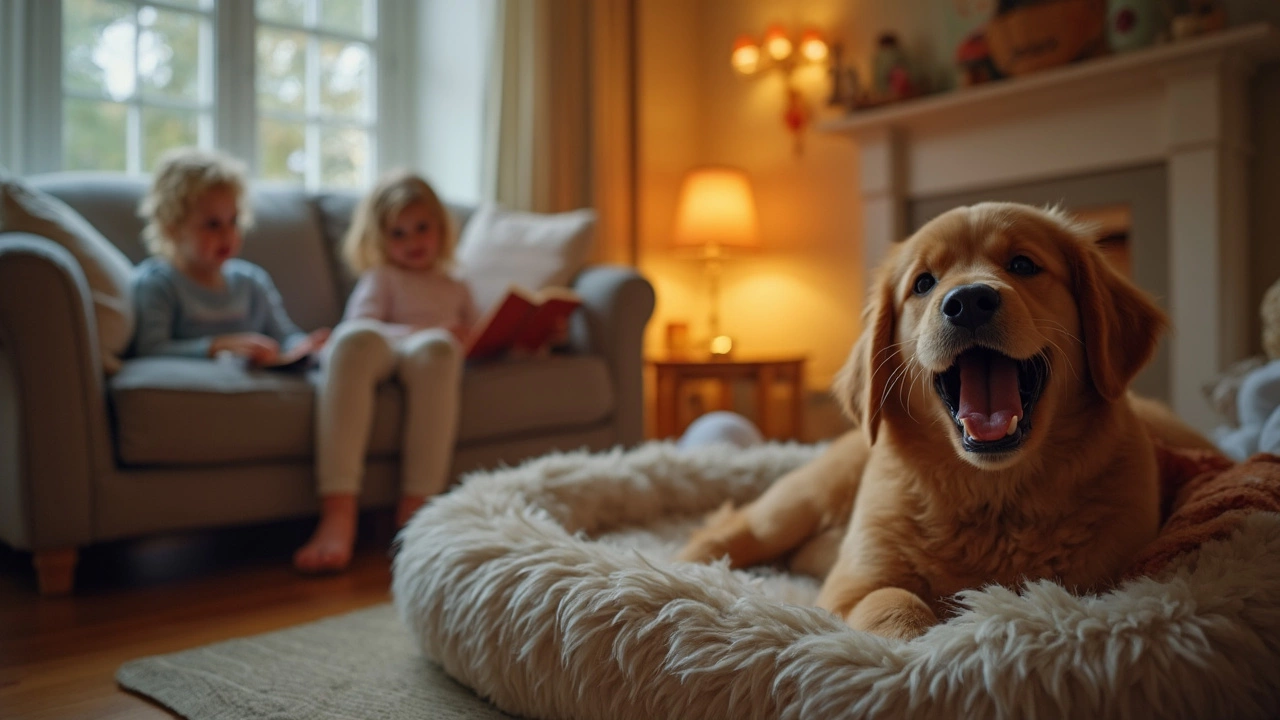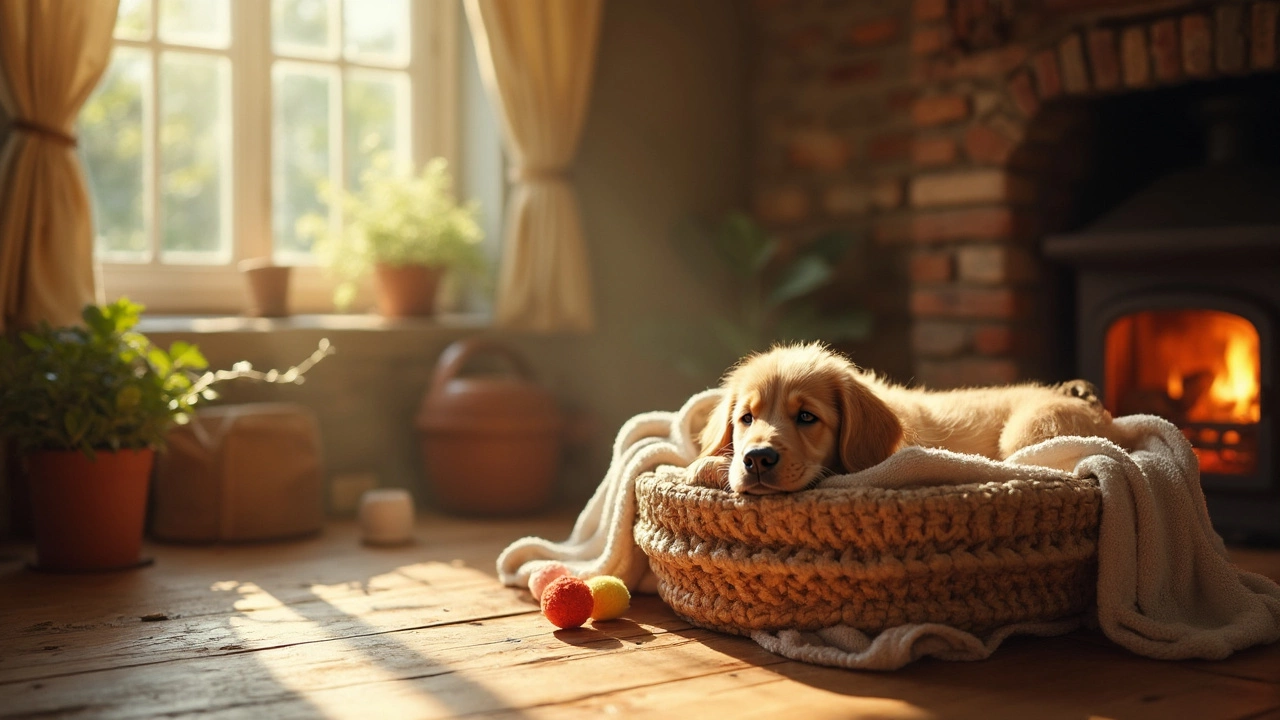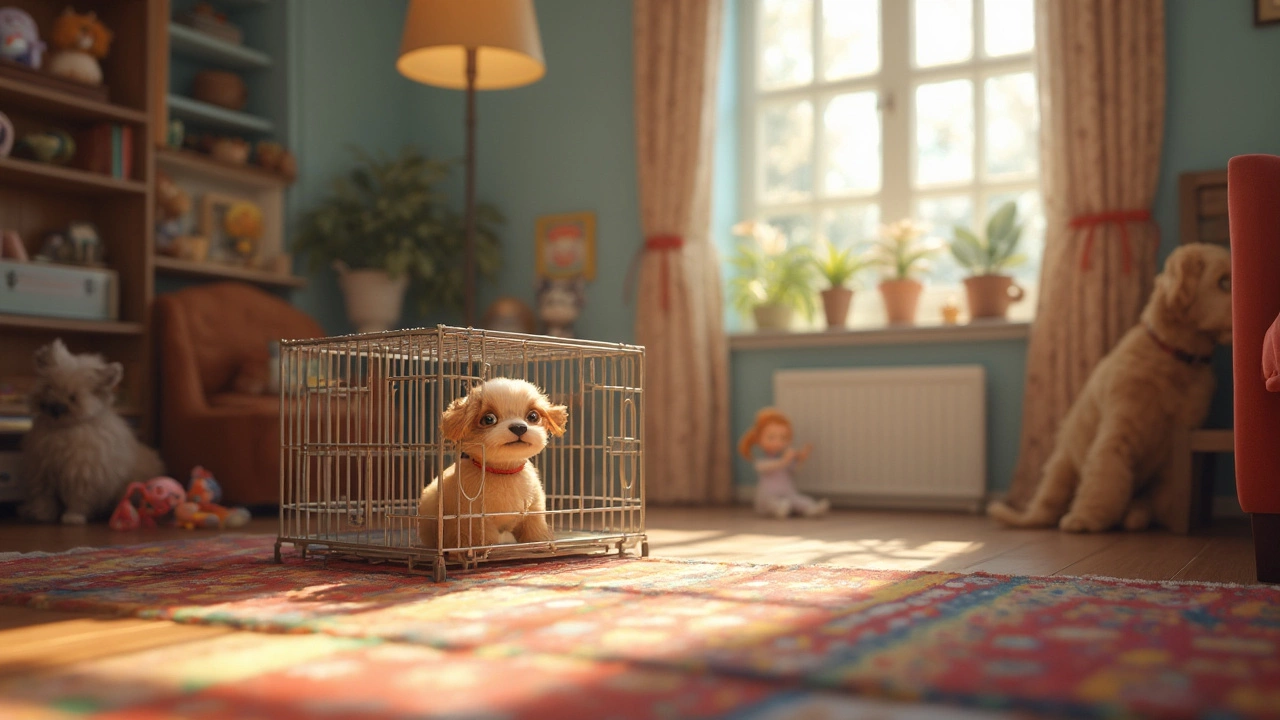Imagine this: you’ve just got a wiggly ball of cuteness at home, and you’re already in over your head from trying to tire them out—only to have them bounce off the walls when you’re ready to crash. Sound familiar? Puppies are little sleep machines with energy packed into those tiny paws, but their sleep schedule isn’t always common sense. Deciding what time your puppy should go to bed isn’t just a random number on the clock—it can mean the difference between peaceful nights and waking up to chaos.
Why Puppies Need So Much Sleep
Puppies seem to spend their days bouncing between wild play and plopping down for a snooze. That’s not just because they’re cute—it’s biology. Scientists at the University of Adelaide found that puppies in their first 16 weeks need an average of 18-20 hours of sleep a day. Yeah, that’s nearly as much as a newborn baby. This epic snooze marathon isn’t them being lazy; it’s essential for their growth and brain development. Every time they conk out, their body is wiring up muscles, producing growth hormones, and making sense of what they learned from chewing on your best sneakers. Sleep is their upgrade time.
Missing out on those vital Z’s can mess with a puppy’s mood. You might see cranky behavior, biting, or the canine version of a tantrum. Plus, their memory needs rest to solidify potty training or basic commands—no sleep means nothing sticks. That’s why veterinarians and reputable breeders stress sleep just as much as feeding on time. I remember our own sleepless nights when my wife Selena and I brought home our pup Zeus. He’d nod off in the middle of play, recharge, and then be ready to go again, which would’ve been adorable if only we could sync up his bedtime with ours.
So if you catch your puppy nodding off at weird times, don’t panic. That’s their way of catching up after a busy, overstimulating day. Forced late nights aren’t good for pups. Their bodies still can’t handle the schedule of an adult dog and absolutely need predictable sleep windows. If you’re wondering if there’s such a thing as too much sleep, the answer is rarely yes for young puppies. If anything, err on the side of more rest—it can only help their fuzzy little brains and wiggly bodies grow up happier and healthier.
Think about it: just as a teenager needs more sleep during a growth spurt, puppies need extra rest to store up energy for growth, play, and learning. And while adult dogs can adjust their sleep to suit you, puppies work on their own biological clock—keep that in mind as you map out the perfect puppy bedtime.
How to Set the Right Bedtime for Your Puppy
This question gets tossed around in every dog forum and at every puppy class: “What time should my puppy go to bed?” Here’s the lowdown: Puppies thrive with consistency. Unlike older dogs, they don’t have the self-control to just lay down and nap when you need them to. That’s where you come in—you set the tone, literally and figuratively, for sleep.
The sweet spot for puppy bedtime falls somewhere between 8:00 PM and 10:00 PM. Why? That window lines up with when the household naturally winds down, and also gives your puppy enough time to digest their last meal and potty before the overnight stretch. If you have a crazy work routine or late-night habits, it’s tempting to keep your puppy up with you, but resist the urge. Their bodies aren’t ready for all-nighters—plus, they’ll be up with the sunrise whether you like it or not.
Your goal is to shape their body clock from day one. Puppies, like babies, respond to patterns. So, start winding things down about an hour before you want lights out. No tug-of-war or wild fetch—think gentle play, then a potty break, then something that helps them settle, like soft petting or music designed for dogs (Spotify even has puppy playlists now).
A good rule: if you need to wake up at 6:00 AM for work, aim for puppy bedtime around 9:30 PM. That gives your pup enough rest and keeps you both on the same morning schedule. Of course, not all puppies are created equal. Toy breeds may get tired earlier, while bigger breeds sometimes power through a bit longer before crashing. Observe when your puppy naturally gets drowsy in the evenings and build your routine around that cue.
Consistency is gold here. It trains their bodies to expect sleep, helps with housetraining, and makes nights a lot less chaotic as time goes on. In our house, packing up the toys and dimming the lights at 9 PM signals to Zeus that it’s time to wind down, which means less drama and more restful sleep for all of us.
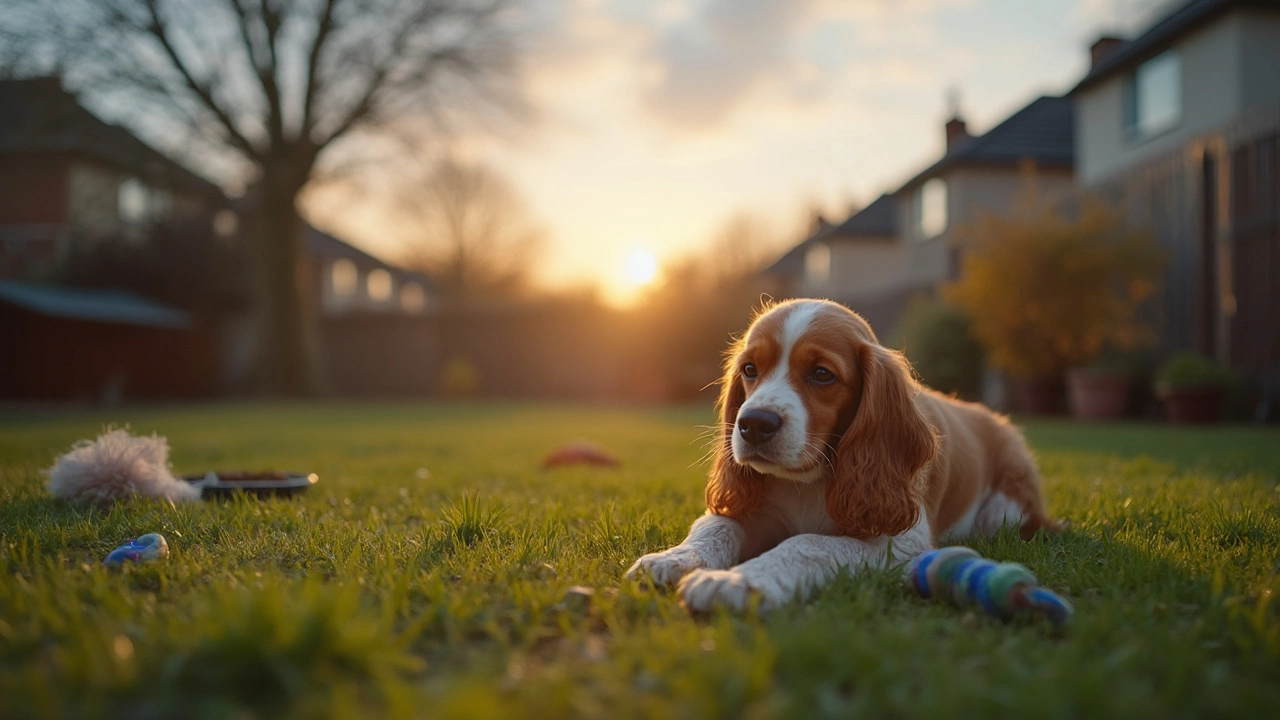
Signs Your Puppy Needs an Earlier Bedtime
Not all yawns are created equal. Puppies can’t exactly shout “Hey, I’m wiped out!” but their behavior tells the story. If you spot your puppy starting to mouth people more than usual, getting clumsy, or showing the zoomies out of nowhere, chances are they’re past due for bed.
Sometimes, people mistake hyperactivity for a sign that a puppy isn’t tired. The truth is, overtired puppies get wound up, not calm. Imagine a three-year-old melting down at a birthday party—that’s basically your dog after missing his nap. So, these are the moments to look out for: excessive chewing, persistent nipping, and ignoring commands they usually know. Just like us, puppies get cranky without rest, so take these cues as a red flag.
Here’s an easy tip: track their behavior over a week. Is your puppy dozing off during dinner? Barking more at dusk? Getting harder to settle every night? If yes, slide bedtime earlier in 15-minute increments until your pup starts sleeping before going full gremlin. It’s all about listening to their body language. If you try to force your puppy to stay up late because you want company, that’s a recipe for more accidents and restless nights.
We learned this the hard way—Zeus would start doing laps around the furniture at 9:15 PM, right after he started getting mouthy. That was our signal. Once we adjusted, those wild sprints turned into cozy snuggles faster than we thought possible.
And don’t forget: every dog is a little different. Some will crash after 8 PM, others seem to push through until 10. Focus on the patterns, not the clock, and your puppy’s bedtime will pretty much choose itself.
Creating the Perfect Night Routine
Bedtime isn’t just about the clock—you shape the whole vibe. Dogs are wired for routine, and the stuff you do every night before bed signals their brain to slow down. Build a routine, keep it predictable, and watch your puppy settle down easier every night.
Start the process about an hour before you want your puppy asleep. Begin with lowering the lights, keeping your voice calm, and turning off any TV shows or music that’s too stimulating. Then head outside for a last potty break—puppies usually can’t go more than 4 hours overnight until they’re three months old, so making sure they go out before bed helps limit 2 AM “surprises.” Finish the night with something soothing: gentle petting, soft music, or even a special bedtime chew that’s safe for puppies.
Here’s what our usual routine with Zeus looks like:
- Quiet play (no roughhousing or chasing)
- Potty break outside, no distractions
- Wipe down paws and do a quick check for ticks (especially important if you live in a wooded area)
- Settle into the crate or dog bed with a comforting item—maybe a worn t-shirt or a soft blanket from their breeder
- Play a calming playlist or white noise machine if there’s outside noise
Some puppies sleep best in a covered crate in your bedroom; others prefer a dog bed nearby. Experiment, but keep the spot consistent. If you have a family or roommates, make sure everyone’s on board with the routine. Kids stomping around at midnight or a loud game console can totally wreck the calm you’re trying to build.
Housetraining is another big factor here. Puppies with a set bedtime usually figure out where and when to “go” faster, which saves you from cleaning up before work the next day. And don’t forget, most puppies under 12 weeks can only hold it for about three hours at night. Plan to get up for a quick potty trip. As they get older, you can push bedtime routines a bit later, and overnight bathroom trips get fewer and further between.
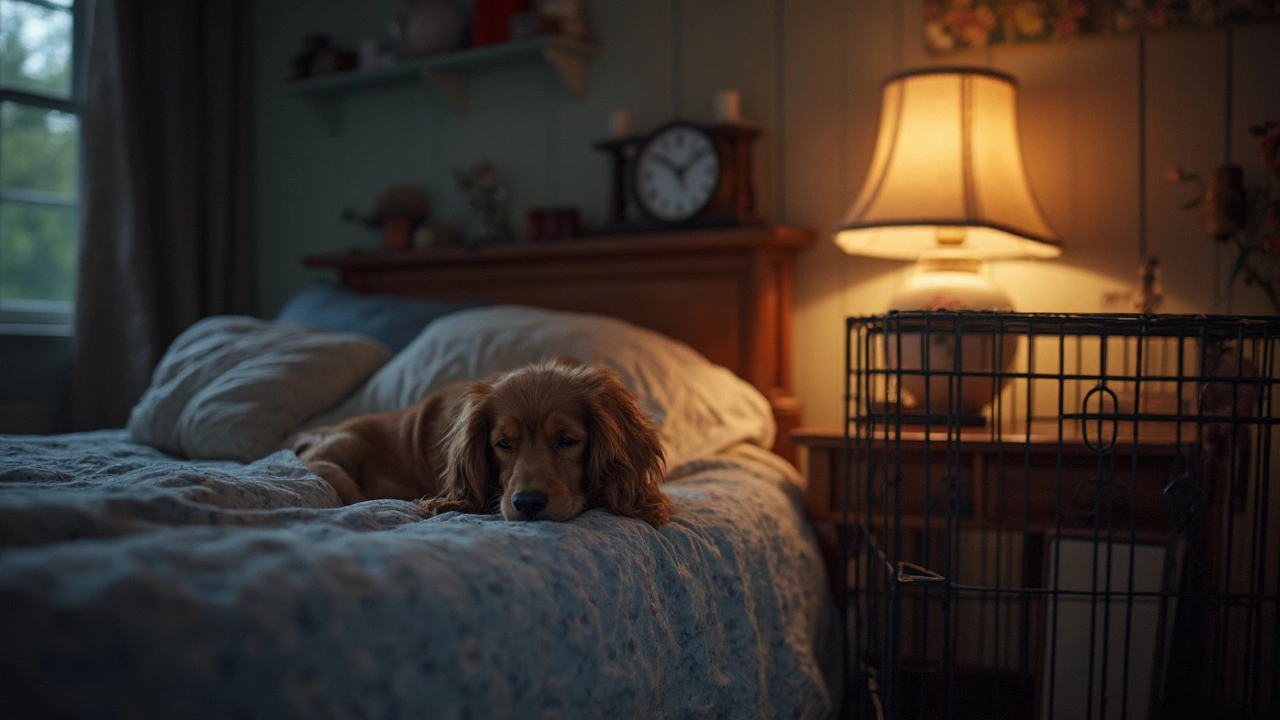
Frequently Asked Questions About Puppy Sleep
Puppy sleep is a major topic for new dog owners, and there’s a reason the internet’s loaded with questions about it. Here are some quick answers to the most common ones, plus a fact sheet table to back it up:
| Age | Daily Sleep Needed | Longest Overnight Stretch | Bedtime Tips |
|---|---|---|---|
| 8-12 weeks | 18-20 hours | 3-4 hours | Crate near you; expect night potty trips |
| 12-16 weeks | 16-18 hours | 4-6 hours | No food 2 hours before bed, consistent lights-out |
| 16-24 weeks | 14-16 hours | 6-7 hours | Start moving bedtime later |
| 6 months+ | 12-14 hours | Up to 8 hours | Test longer overnights |
puppy bedtime becomes more hands-off as your dog grows. There’s no single perfect hour for lights out—success comes from reading your puppy’s behavior, sticking to a calming routine, and making time for that last potty trip even if you’re tired.
A couple things people ask a lot:
- Should I let my puppy sleep in my bed? That’s personal! Many trainers suggest a crate next to your bed at first for bonding and so you can hear them if they need to go potty, but eventually, it’s fine to invite them up if it works for you. Just set rules early and be consistent.
- What if my puppy wakes up super early? Darkness helps—close shades to keep out sunrise, and if they wake up, take them potty with minimal stimulation. No play, just back to sleep.
- Is it OK to leave a puppy alone overnight? Young puppies need potty trips and comfort for the first few months. Over time, you can leave them longer as their bladders mature, but start slow.
- Do puppies need a nap schedule too? Yes! Keep things predictable—active playtime followed by nap breaks in a quiet spot helps with training and temperament.
Ultimately, you’ll find that your puppy settles into a schedule with a bit of trial and error. Trust the process and keep observing—your dog’s healthy sleep now gives them a lifetime of good habits, calm nights, and a happier life with you.

